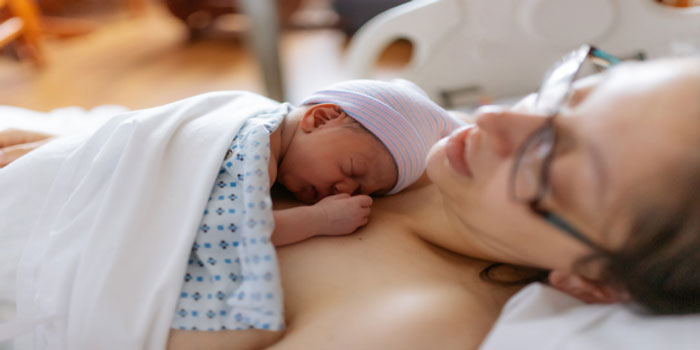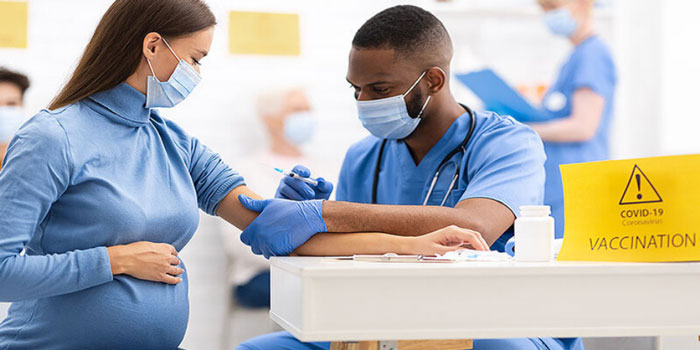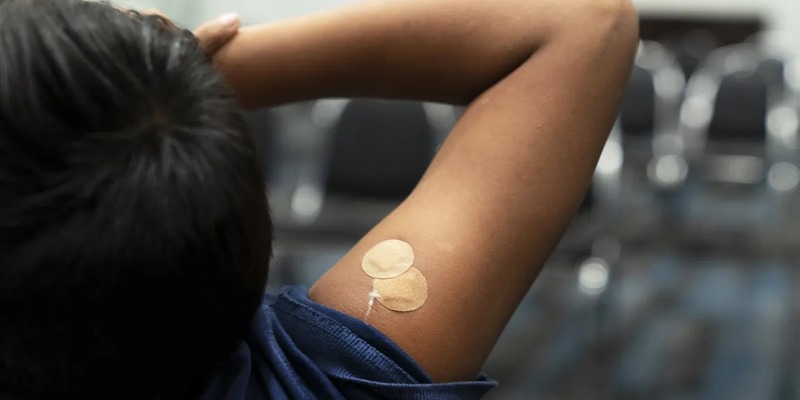A woman's body and mind undergo profound changes during pregnancy, and the ongoing coronavirus (COVID-19) pandemic can potentially exacerbate already stressful situations. Women expecting a child may be worried about the effects of the virus on their own and their child's health. Pregnant women should be aware of the risks COVID-19 poses to themselves and their unborn children and should take precautions against contracting the virus. We will discuss what can be done to protect pregnant women from contracting COVID-19 and their unborn children and how they can take care of their mental health during this trying time.
COVID-19 May Increase The Risk Of Severe Illness In Pregnant Women
Due to the effects of pregnancy on the immune system and the increased risk of complications from infections, pregnant women may be at a higher risk of severe illness if they contract COVID-19. Although severe disease or death is unlikely, it is essential to note that most pregnant women who have employed COVID-19 have experienced only mild to moderate symptoms. Pregnant women should take care of their physical and mental health and follow safety guidelines to lower their risk of infection. Pregnant women should talk to their doctor before getting vaccinated against COVID-19, even though there is no evidence that the vaccine is harmful.
COVID-19 Cannot Be Transmitted To A Baby In Utero

There is no proof that COVID-19 can be passed on to an unborn child during pregnancy. This means the mother's risk of contracting the virus while pregnant or giving birth is low. Newborns can catch COVID-19 from an infected mother or another close contact with an infected person. Pregnant women should take precautions against contracting and spreading COVID-19 by adhering to the guidelines for preventing the disease. This includes staying home when sick, keeping a safe distance of at least 6 feet from others, and frequent hand-washing.
The Pandemic May Stress And Worry Pregnant Women
Pregnant women may be especially susceptible to stress and anxiety because of all the changes and unknowns they are experiencing due to the COVID-19 pandemic. The stress and uncertainty caused by the pandemic can amplify the difficulties that some women already face during pregnancy as they go through physical and emotional changes. If a pregnant woman is experiencing emotional distress, she should reach out for help. Therapy, support groups, and consultations with medical professionals are all viable options. Pregnant women should also take precautions against contracting COVID-19 by adhering to the guidelines that have been established for them to follow.
- Women who are pregnant should take precautions to avoid contracting the COVID-19 virus by following the advice given in the recommended guidelines.
- To reduce their risk of contracting COVID-19, pregnant women should take the same precautions as the general public.
- Regularly and thoroughly (for at least 20 seconds) wash one's hands with soap and water
- The practice of hiding one's face in public
- Separating yourself from other people by at least 6 feet at all times
- Resting at home when ill
It's also crucial that expectant mothers keep up with their regular prenatal care visits and listen to their doctor's instructions. This may require telehealth services or additional safety measures before visiting a healthcare provider. If a pregnant woman has been exposed to COVID-19 or is experiencing symptoms, she should contact her doctor immediately. Pregnant women and their unborn children can avoid contracting the COVID-19 virus if they adhere to the guidelines and get the help they need from their healthcare team.
The Covid-19 Vaccine Has Not Been Shown To Harm Unborn Babies

There is no data to suggest that the use of COVID-19 vaccines during pregnancy is dangerous. Pregnant women should discuss vaccination options with their doctor before receiving any vaccine to be safe. Because of the lack of research and data on the safety of COVID-19 vaccines in pregnant women, they are not recommended for use in this population. The benefits and risks of vaccination should be discussed with a healthcare provider by pregnant women who are at high risk of exposure to COVID-19, such as healthcare workers. If a pregnant woman is considering getting the COVID-19 vaccine, she should talk to her doctor first to figure out the safest and most effective course of action in her specific case.
Conclusion
Although the risk of severe illness from COVID-19 is higher in pregnant women, it is still low, and most pregnant women who have contracted the virus have only experienced mild to moderate symptoms. Pregnant women should take care of their physical and mental health and follow safety guidelines to lower their risk of infection. Pregnant women should talk to their doctor before getting vaccinated against COVID-19, even though there is no evidence that the vaccine is harmful. By following these measures, pregnant women can protect themselves and their unborn children from contracting COVID-19.







